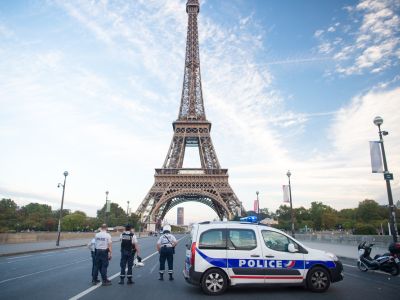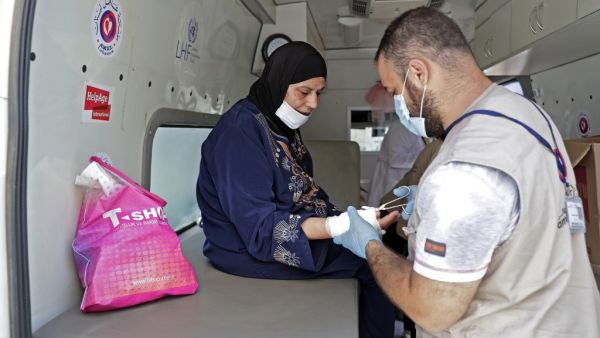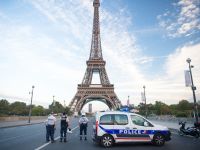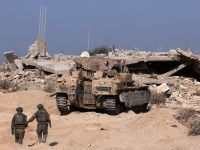Lebanon is facing a surge in coronavirus cases after the devastating blast in Beirut which killed 180 people and wounded thousands more earlier this month.
Medical officials are now urging for a two-week lockdown to try to contain the pandemic.
Virus numbers were expected to rise following the explosion of nearly 3,000 tons of ammonium nitrate stored at the Beirut port on August 4.
The blast overwhelmed the city's hospitals and also badly damaged two that had a key role in handling Covid-19 cases.
Ahead of the surge, medical officials had warned of the dangers of crowding at hospitals in the aftermath of the explosion, at funerals or as people searched through the rubble.
Protests and demonstrations also broke out after the blast as people vented their anger at the ruling class.
On Sunday, Lebanon registered 439 new virus cases and six deaths. The new infections bring the total number of cases in the country of just over 5 million people to 8,881, with 103 deaths.
Initially, strict measures had kept the numbers of cases under control in Lebanon but they surged after a lockdown and night-time curfew were lifted, and the country's only international airport reopened in early July.
Health Minister Hamad Hassan warned the true number could be far higher.
Following a meeting on Monday with medical officials who demanded another two-week lockdown, he urged everyone wear a mask, saying the virus has now spread in every city and almost every village in Lebanon.
'It is a matter of life and death,' Mr Hassan said, adding that soon private and public hospitals might not be able to take more patients.
Lebanon's health sector has been challenged by the pandemic that hit amid an unprecedented economic and financial crisis. The explosion in Beirut's port only increased the pressure on the Lebanese capital's hospitals, knocking out at least three of them.
Dr Firas Abiad, director general of Rafik Hariri University Hospital which is leading the fight against coronavirus, described the situation as 'extremely worrisome', warning that without a lockdown, the numbers will continue to rise 'overwhelming the hospital capacity.'
Mr Hassan urged every expatriate or foreigner returning to Lebanon not to leave their hotels until they are tested and cleared. People travelling to Lebanon will be required to be tested both before and upon arrival.
He also called for field hospitals and said some public hospitals will exclusively handle coronavirus patients.
Petra Khoury, medical adviser to outgoing prime minister Hassan Diab tweeted that the Covid-19 positive rate has increased from 2.1 per cent to 5.6 per cent in just four weeks.
'The virus doesn't differentiate between us. A rate 5 per cent is real threat to all our nation,' she warned.
This article has been adapted from its original source.










